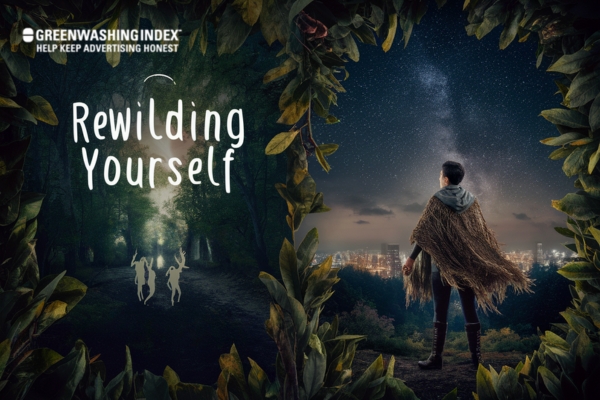

Standing barefoot on a lush forest floor, the gentle rustle of leaves around you. This is where the journey to Rewilding Yourself begins. Nature has a way of soothing our souls and grounding us. It’s something we often forget in our busy lives. I remember my first camping trip; the crisp air, the towering trees, and the feeling of freedom.
Instantly, I felt more connected to the world. Rewilding Yourself is about rediscovering that connection. It’s about embracing the natural world to enhance our mental and physical well-being. Let’s dive into this transformative experience together.
Rewilding is a nature-focused approach aimed at restoring ecosystems to their natural condition by enhancing biodiversity and allowing nature to thrive with minimal human interference. This method often involves the reintroduction of key species and the creation of wildlife corridors, which help connect protected areas.

By reducing human activities, rewilding seeks to rejuvenate natural habitats, promoting the recovery of ecological processes and boosting overall environmental health. Through this process, the vitality of ecosystems is restored, supporting a balanced and thriving natural world.
Rewilding yourself involves reconnecting with nature to enhance personal well-being and foster a deeper appreciation for the environment. This journey can significantly improve mental and physical health, reduce stress, and promote a sense of purpose.
By integrating natural experiences into daily life, individuals can cultivate a more harmonious existence, irrespective of their living situation. Here are some key benefits of rewilding yourself:
Rewilding yourself is a transformative process that encourages individuals to reconnect with nature and their primal instincts. In our modern, technology-driven world, many people have become disconnected from the natural environment, leading to a sense of disconnection from themselves and their surroundings.

Rewilding offers a path to rediscover this connection, promoting mental well-being, creativity, and a deeper understanding of the ecosystems that sustain us. Here are five essential tips for rewilding yourself:
Engaging with nature is fundamental to the rewilding process. This can involve simple activities like walking in a local park or spending extended periods in wilder settings such as forests, mountains, or beaches. Nature has a unique ability to soothe the mind and body, allowing individuals to escape the stresses of daily life.
Embracing nature as part of your healing journey can be transformative, and Heal Behavioral Health – Addiction & Mental Health Resources offers valuable guidance on reconnecting with yourself through rewilding and holistic wellness practices.
Research indicates that spending time outdoors can lower stress levels, improve mood, and enhance cognitive function. Activities such as hiking, birdwatching, or simply sitting in silence can help restore a sense of balance and peace. Moreover, immersing oneself in nature encourages mindfulness—being present in the moment and appreciating the beauty around us. This connection fosters a greater appreciation for the environment and can inspire individuals to become stewards of nature.
Rewilding involves awakening our senses, which can become dulled in urban environments. Engaging with the natural world through touch, sight, sound, taste, and smell can deepen our connection to it. For instance, walking barefoot on grass or sand allows us to feel the earth beneath us, promoting grounding—a practice known for its mental health benefits.
Listening to the sounds of birds or rustling leaves can enhance our awareness of our surroundings. Additionally, foraging for wild edibles or herbs can provide a sensory-rich experience that connects us to our food sources and the land. By consciously engaging our senses, we not only enrich our experiences but also cultivate a deeper understanding of nature’s rhythms and cycles.
Incorporating natural living practices into your daily routine is an effective way to rewild yourself. This can include choosing seasonal foods, reducing reliance on processed items, and embracing sustainable practices like gardening or composting. Eating seasonally aligns your diet with nature’s cycles and encourages a more intimate relationship with local ecosystems.
Growing your own herbs or vegetables fosters a sense of accomplishment and connection to the earth. Furthermore, using natural materials in your home—such as wooden furniture or organic textiles—can create an environment that reflects your commitment to living harmoniously with nature. These practices not only benefit personal health but also contribute positively to the environment.
Rewilding also encompasses learning skills that connect us more deeply with nature. This could involve activities such as foraging for wild foods, building shelters from natural materials, or mastering fire-making techniques. These skills not only enhance self-sufficiency but also foster a profound respect for the resources provided by nature.
Foraging teaches individuals about local flora and fauna while encouraging them to engage with their environment actively. Similarly, learning how to cook over an open flame or create crafts from natural materials can rekindle creativity and resourcefulness. Engaging in these primitive skills reconnects us with our ancestors’ ways of living sustainably within their environments.
A crucial aspect of rewilding is stepping away from technology and digital distractions that dominate modern life. This disconnection allows for greater presence in the natural world and fosters deeper connections with oneself and others. Setting aside specific times each day or week to unplug from devices can lead to increased mindfulness and improved mental clarity.
During these tech-free periods, individuals are encouraged to engage in outdoor activities or creative pursuits that do not rely on screens. The benefits of this practice are manifold; it not only reduces stress but also enhances social interactions by fostering genuine connections without the interference of digital devices.
By integrating these tips into your lifestyle, you can embark on a journey of rewilding that promotes personal growth and environmental stewardship.
The balance between embracing a natural lifestyle and managing the pull of technology can be tricky. It’s a common hurdle for those keen on reconnecting with nature while still staying in touch with modern life. Finding a middle ground is essential for fostering a harmonious relationship with both worlds.
Let’s explore how you can achieve this balance effectively.
Rewilding Yourself offers a unique opportunity to reconnect with nature and embrace a lifestyle that nurtures both mind and body. By spending more time outdoors, practicing mindfulness, and simplifying daily routines, one can foster a deeper understanding and appreciation for the natural world.
These practices not only enhance personal well-being but also contribute to a more sustainable and harmonious way of living. Embracing rewilding means making conscious choices that align with ecological balance and personal growth. To continue exploring similar topics and gain more insights, be sure to check out other informative articles on our website!
